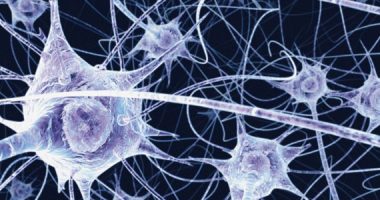
Model of a common octopus, 1972 | American Museum of Natural History | No known copyright restrictions
Knowledge of human consciousness is subject to a major limitation that is connatural to our way of relating to the world. The subjectivity of our experience forces us to conjecture about the thoughts and feelings of the other, which we can only access by extrapolating our own sensations. In 1974, Thomas Nagel began to wonder how we could know what a bat feels by means of our perspective. The last few years have brought proposals that take his reflection to new levels of complexity. How can we understand the idea of intelligence in a plant or an octopus?
If I tell you that I’m sad, you probably understand, or think you understand, what I mean. At some point you’ve felt the same emotion; someone taught you that this is called “sadness”, and you more or less know in which situations it occurs, the levels it can reach and the consequences it usually entails. You know that I’m sad because you’ve been sad and because you’ve been told about sadness, you’ve read about sadness or you’ve seen representations of sadness in films and paintings. If you work in neuroscience, you might even venture so far as to tell me that you know the neural correlates of my sadness and say that you can identify it using medical imaging techniques, which will involve us in a lengthy debate as to whether all that technology enables you to understand what I’m feeling. The same applies if I speak to you generally about my mind, feelings or thoughts. They are purely symbolic abstract words, but ones which, to a degree, are identified by you in your personal library. You know that I’m a thinking being and that I feel, because you think and feel with that indefinite, intangible thing that somehow emerges from the brain. You deduce, from your unique, inaccessible experience, what must be happening inside here—I’m pointing to my bald spot—and intuit that processes are taking place that lead me to experience what we call subjectivity.
Brains everywhere
However, this theory of mind, which is simply conjecture about what another person feels or thinks, is just that: pure conjecture. We suppose too many things with a large margin of error, because this is the only tool we have by means of which to understand subjective experience in the other. But what happens when that other is not a human being? Thomas Nagel wondered back in the seventies what it was like to be a bat and led many other philosophers and thinkers to elucidate theories about physicalism or qualia, the subjective qualities of individual experience. Nagel referred to the bat because it is an animal that is not as close to us as a pig or a monkey, but not as far away as a stick insect or a dung beetle. In recent times, furthermore, we have seen the emergence of a couple of models that aim to stretch our capacities to the maximum and put ourselves in the skin—so to speak—of other creatures or organisms. Here I refer to ideas like the mind of plants or the eight (or nine) brains of the octopus, which, if not explained with the utmost clarity, can unleash the wildest anthropocentrism.
The case of the feelings of plants is paradigmatic. The evidence of plant biology makes it undeniable that plants have highly complex activity in their interaction with the environment by means of their multiple receptors. Furthermore, the electrical activity that takes place in plant cells follows the same principles as the polarization of animal cells. If to this we add the sensitivity of plants to sunlight, soil nutrients and water, and their movement to obtain what they need, it is only normal that we end up attributing a specific intelligence to these organisms. The problem comes when analogies become synonyms. Talking about feelings in a ficus is by no means the same as what we understand by human feelings, just as saying that my tomato plant has something like a nervous system is, if not properly qualified, overstepping the mark. And what about expressions like the “brain of the plant”, pushing the definition of this organ to the limits—and making them explode. This idea of plant neurobiology is, then, a good attempt to make the complexity of plants understandable in society’s eyes, but it can easily fall prey to a kind of anthropocentrism, saying that that everything works like we work and in the way that we feel.
I think eight times, therefore I am
The octopus is a fascinating creature which ever way you look at it. And that includes neuroscience. These animals have a network of between 100 and 500 million neurons (a similar number to dogs), some two-thirds of which are distributed along their tentacles. We are looking at millions of receptors in each tentacle, generally distributed in their more than two hundred suckers per arm, which makes them extremely sensitive to everything they touch. In addition, their limbs have highly complex, independent movements that require very efficient control. As if that were not enough, various experiments have shown that octopuses have a very good memory and high intelligence when it comes to solving problems like opening boxes to get at the food hidden inside. Writers such as Peter Godfrey-Smith (Other Minds) and Sy Montgomery (The Soul of an Octopus) have produced interesting works that emanate great love for these strange beings. And various research groups have picked up the gauntlet of their predecessors to delve even further into the characteristics of this creature’s nervous system.
One of the conclusions reached very recently suggests that we forget the idea that octopuses have one brain per tentacle and that they function independently of each other. As Tamar Gutnick and the rest of her team say, rather than understanding each of the eight limbs as having a mind of its own, it is more correct to imagine the whole as an interconnected network, which, in Gutnick’s words, is more like a brain with eight very intelligent arms. Any regular readers of neuroscientific dissemination will see a nice parallel between the hypothesis of the octopus brains and periodic proposals to rename parts of the body as “our second brain”: the heart and the gut are, to date, the main candidates, because they have a high concentration of neurons on their surfaces.
Underlying all these discussions is a great truth: scientific evidence can only be refuted with scientific evidence, and the way we communicate progress in any field has to be rigorous and always open to discussion—and free of classical anthropocentrism, please. It is difficult for us to reach a consensus when it comes to defining words like intelligence, mind and feeling not because the evidence of what lies behind them has multiple interpretations, but because we are very limited by language, and, with it, by our mind, when defining such complex concepts. And when I say “mind”, you know what I mean. Don’t you?





Saty Raghavachary | 05 June 2021
Hi Jose, lovely article, good question!
It is indeed possible to step back from anthropocentrism, solipsism, brains, nervous systems even – and ask, what is the common theme in all forms of intelligence that span viruses, amoeba, slime mold, plants, insects, marine life, birds, mammals including humans. My answer: intelligence is ‘considered response’. More here: https://www.researchgate.net/publication/346786737_Intelligence_-_Consider_This_and_Respond
Cheers,
Saty
Arie Berman | 06 June 2021
While we should be careful not to over “anthropocentralize”, we should also avoid denying similarities to other beings for fear of anthropocentralization. Much, if not all knowledge is rooted in analogy, and some things are not externally observable and can only be understood by analogy to ourselves.
Leave a comment